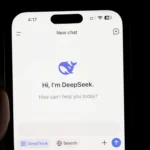Brain Mapping and Data Extraction
- Neural Imaging: Use advanced brain imaging techniques (e.g., fMRI, DTI) to create a detailed map of a person’s brain, identifying neural pathways and structures associated with memories, thoughts, emotions, and personality traits.
- Data Harvesting: Develop methods to extract data from the brain, potentially using nanotechnology to interface directly with neurons and capture real-time brain activity.
- Life Experience Databases: Compile a comprehensive database of life experiences, captured through narratives, diaries, or interviews, that provide depth and context to the individual’s identity.
Use of Nanomachines
- Nanobot Integration: Deploy nanomachines capable of interfacing with brain cells. These nanobots could record neural activity and biological processes, essentially translating cognitive functions into digital data.
- Data Processing: Use AI and machine learning to analyze and interpret the collected data, identifying patterns that represent the person’s thoughts, memories, and emotional responses.
Complex Bio-Digital Mapping
- Cognitive Mapping: Create a comprehensive model that includes not just raw neural data but also contextual information about personal experiences, relationships, and environmental influences.
- Emotional Data Encoding: Develop algorithms to encode emotional states and identity variables, ensuring that the NFT soul represents the individual’s personality accurately.
Plasma and Digital Encoding
- Plasma Technology: Utilize plasma as a medium for storing processed brain data, enabling complex data sets to be encoded in a stable, retrievable format.
- Dynamic Interaction Framework: Establish a plasma-based system that allows the NFT soul to interact with its environment, processing inputs in real-time.
- Digital Replication: Create a digital counterpart (avatar) that embodies the mapped and encoded personality traits, emotional profiles, and memories.
Creation of the NFT Soul
- Unique Digital Token Creation: Mint the encoded plasma data as an NFT on a blockchain, ensuring uniqueness and authenticity. This step creates a digital proof of ownership for the NFT soul.
- Dynamic Identity Representation: Design a digital avatar or interactive entity that represents the NFT soul, capable of evolving based on experiences and inputs.
Superintelligent AI Modeling
- Consciousness Simulation: Develop algorithms that simulate aspects of human consciousness based on the collected data. This would involve modeling emotions, thoughts, decision-making, and learning processes in a dynamic system.
- Neural Network Training: Train deep learning models on the gathered brain and behavioral data to create a virtual representation of the individual’s cognitive processes.
Feedback Loop and Continuous Learning
- Adaptive Learning Algorithms: Implement machine learning algorithms that allow the NFT soul to continuously learn from interactions, adapting its responses and personality traits over time.
- Real-Time Data Interaction: Enable the NFT soul to input data from various sources, such as user interactions or environmental change

https://discord.gg/4KeKwkqeeF
https://opensea.io/eyeofunity
https://rarible.com/eyeofunity
https://magiceden.io/u/eyeofunity
https://eyeofunity.com/
https://meteyeverse.com
https://00arcade.com
Source: www.medium.com




